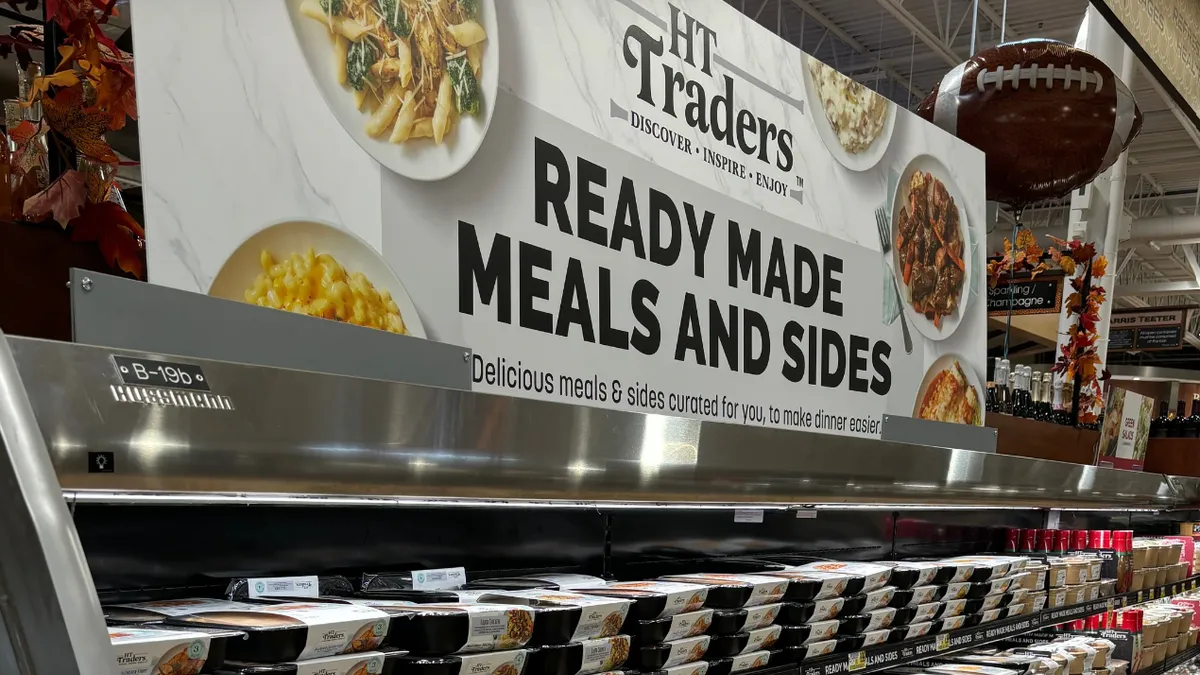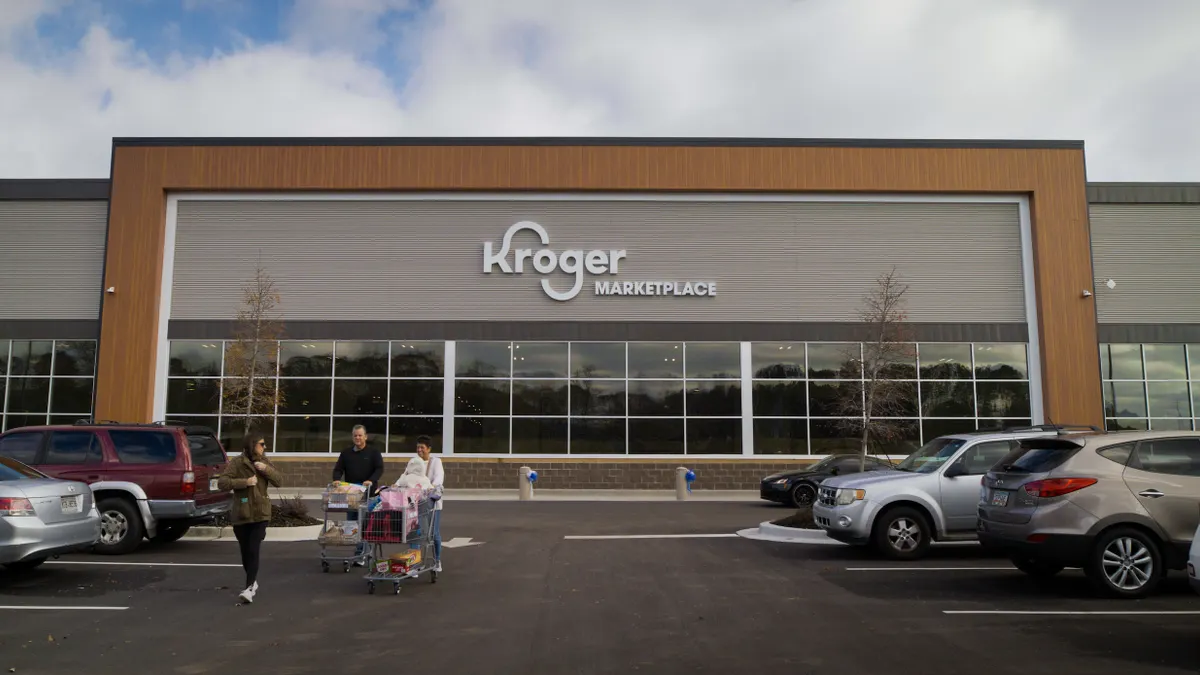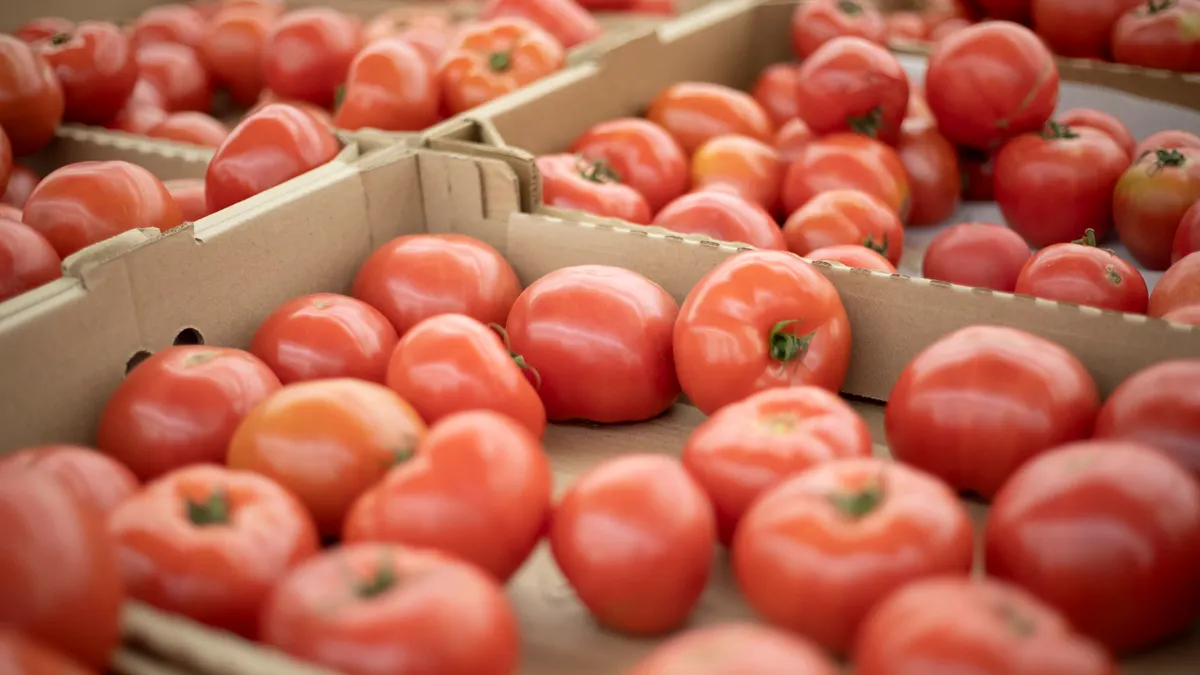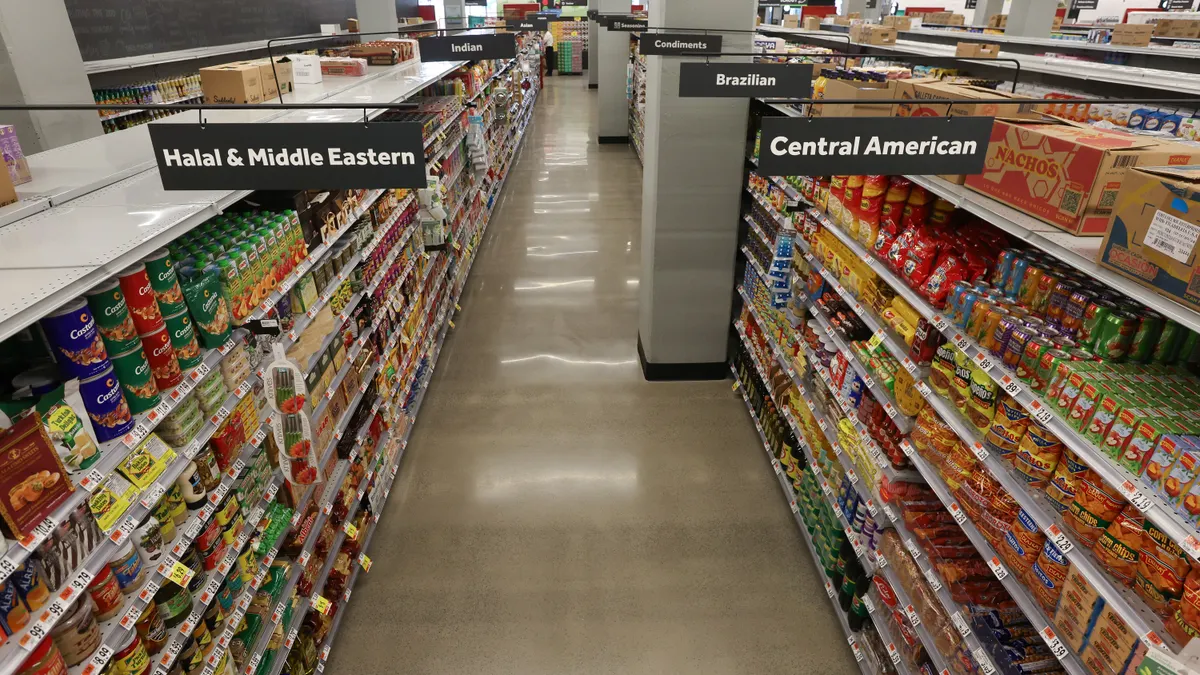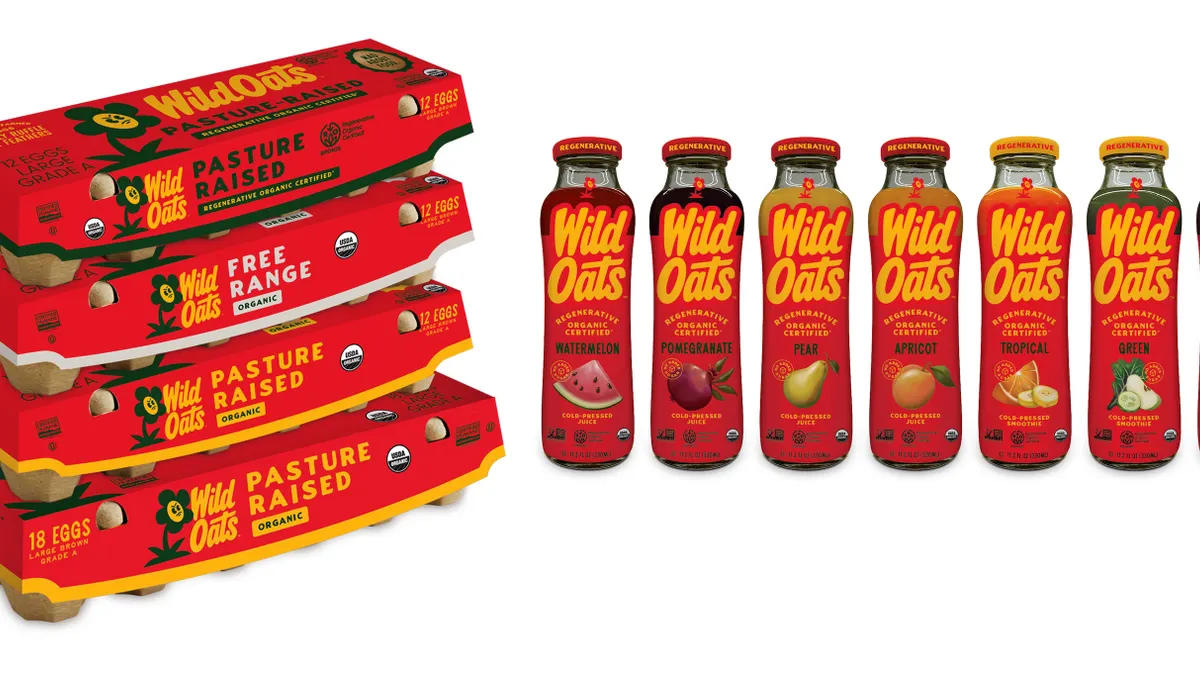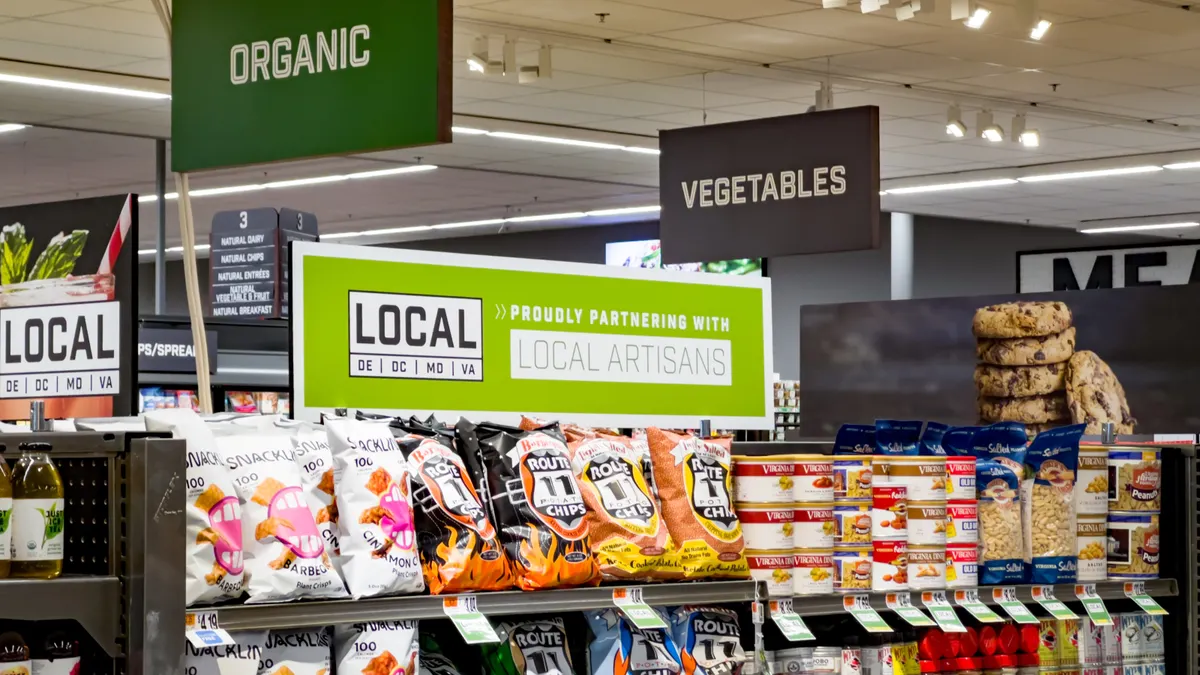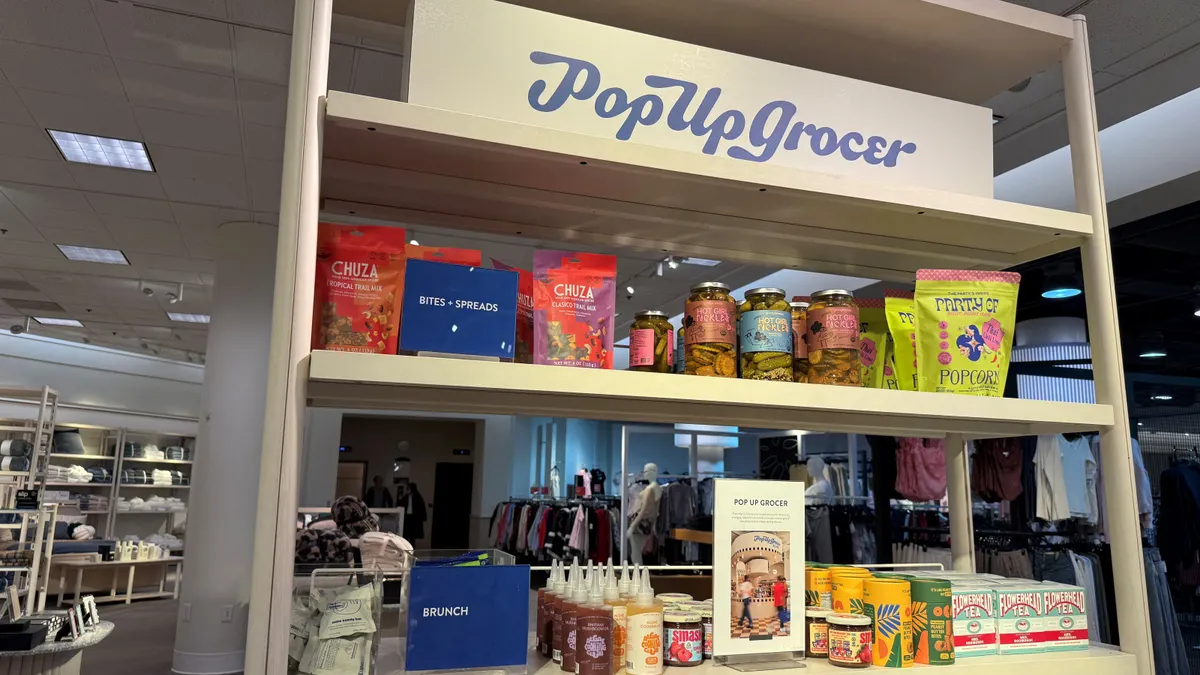All the right ingredients are coming together to form a heady brew of private label beer innovation for retailers.
Consumers are prioritizing value-priced beers. Brewers that have struggled with sagging demand have excess manufacturing capacity available. And major players like Costco and Walmart have made investments in exclusive beer brands recently.
For decades, beer has been a fairly impenetrable category for store brands. While other departments have seen an explosion of private labels, beer has resisted this due to its plethora of cheap options with significant brand equity, said Jim Watson, senior beverage analyst at banking and financial services firm Rabobank.
But these days, consumers’ thirst for quality beer at a reasonable price isn’t getting fully quenched — especially as struggling craft brewers have pulled back on production and innovation, Watson said.
“The category is, very interestingly, a little bit more ripe for the taking than it ever has been from a private label perspective,” he noted.
Costco recently partnered with Oregon-based Deschutes Brewery, one of the country’s largest craft beer makers, to offer a helles-style lager as well as a limited-availability barrel-aged stout under the club retailer’s Kirkland brand. Eager to improve upon an earlier Kirkland beer that it discontinued in 2018, Costco has “finally hit the mark” with the new Deschutes-made brews, according to The Wall Street Journal.
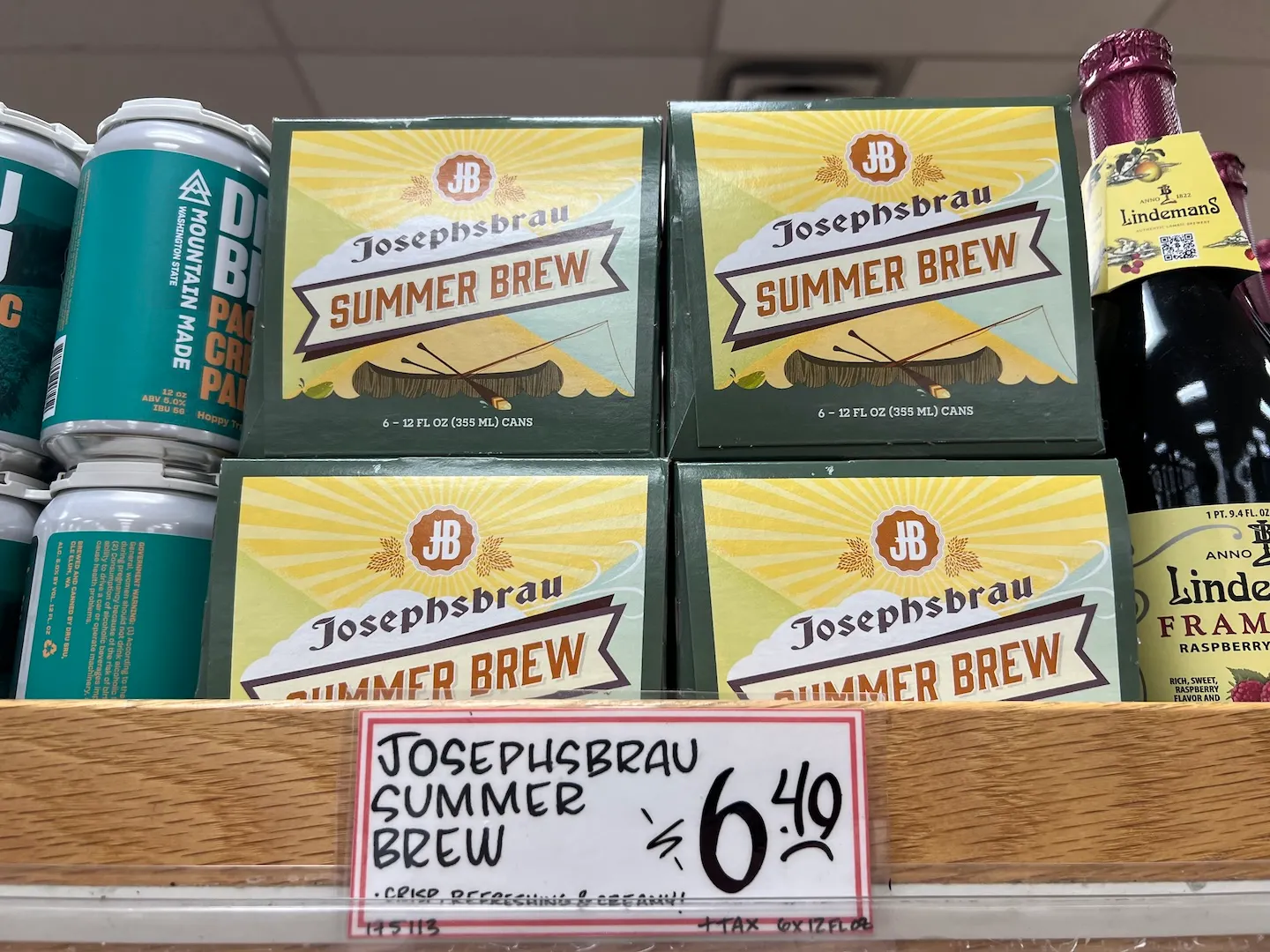
Walmart, meanwhile, seems to be preparing to launch contracted brews under a line called Brewmasters, according to Ad Age. Labels approved by the Alcohol and Tobacco Tax and Trade Bureau closely resemble powerhouse brands like Modelo Especial, Michelob Ultra and Bud Light, the publication reported.
Grocers like Trader Joe’s and Wegmans as well as convenience store chains like Sheetz, Rutter’s and Stewart’s Shops have spent years dabbling in private label beer. Recently, Stewart’s Shops, which operates around 400 convenience stores, mostly in New York State, relaunched Mountain Brew, an exclusive beer brand that garnered mixed reviews during a 10-year run on shelves that ended in 2020.
So far, the revitalized beer has been a smash hit.
“It’s more than doubled our expectations in terms of demand,” said Stewart’s spokesperson Robin Cooper. “It just has taken off.”
Part of Mountain Brew’s appeal likely stems from its existing brand awareness, Cooper said. Although its predecessor, Mountain Brew Ice, was not universally loved, it was well known among shoppers. The new Mountain Brew lager also has local appeal and better quality behind it. Whereas Mountain Brew Ice was made by a few different brewers in the Midwest, the new version is brewed by Paradox Brewery, which is located in New Hudson, New York.
The revamped Mountain Brew is also enticing for price-conscious beer drinkers. Each 19.2-ounce can costs $2.19, and a two-pack is $4.
Devon Hamilton, director of operations at Paradox, said the brewery tested out the recipe for Mountain Brew in its tasting room before finalizing it for Stewart’s Shops. He said the beer has sold so well, he’s looking to bring in additional brewing tanks to boost production.
“If I have an open tank right now, I’m throwing Mountain Brew in it,” he said.
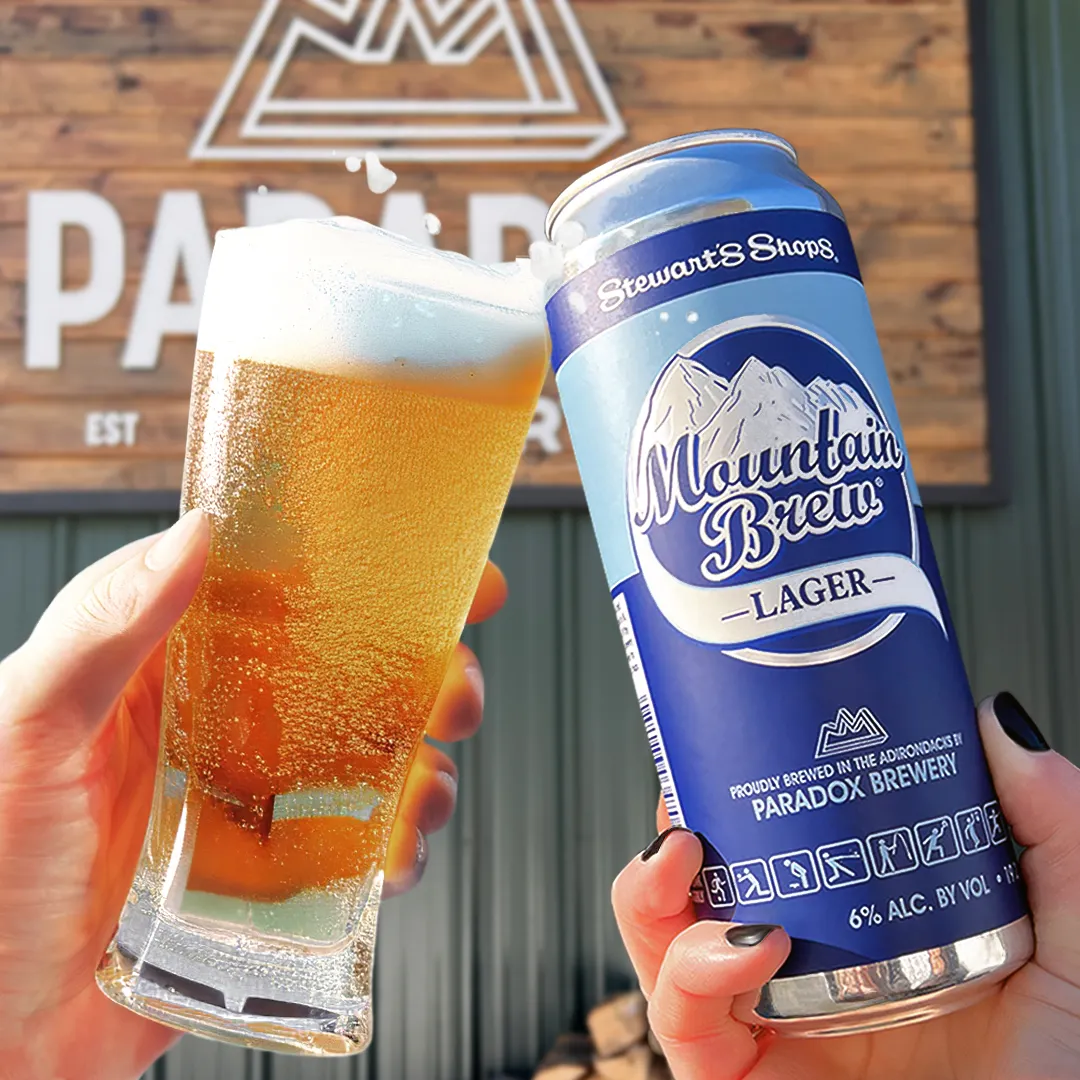
Paradox is looking to parlay its success with Stewart’s into additional private label opportunities. It’s currently working with a grocery chain in the region to develop a store brand beer, Hamilton said.
Private label sales overall grew by 4% last year to reach a total of $271 billion, according to the Private Label Manufacturers Association. Four in 10 consumers surveyed recently by consulting firm PDG Insights said they’re buying more private label products in 2025 than they were a year ago.
Despite all the tailwinds in the market right now, bringing private label brews to shelves is still very difficult, sources said. The beer aisle is flooded with options, making it challenging to stand out. In craft beer, clever names and eye-catching labels are table stakes, while mainstream brands have deep pockets and sophisticated marketing strategies.
“Are you ready to invent a brand and do the marketing behind it?” Watson said. “That's a hard thing, and you are competing to a certain degree with Bud Light and its entire marketing budget and Corona and its entire marketing budget.”
Finding the right brewing partner can also be challenging, Watson said. Craft brewers may be eager for the additional business, but they may not have the capacity or the ability to scale up their operations if needed.
Hamilton said it’s vital that retailers know the audience they’re trying to serve and the size of that market. Part of Mountain Brew’s success, he said, stems from Stewart’s Shops having a clear vision in that regard.
“They knew that their customer was looking for a value product,” Hamilton said. “There's a reason Stewart’s didn't go with a hazy New England style IPA and went with a light adjunct American lager instead.









